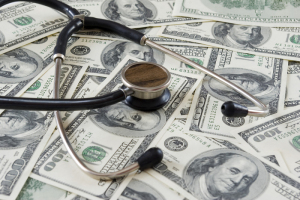por
Lauren Dubinsky, Senior Reporter | September 21, 2017

Growing faster on the
private side
The average income of cardiologists in the U.S. is on the rise, according to a new MedAxiom survey of over 2,300 physicians.
The compensation of private cardiologists is increasing at a faster rate than those affiliated with a health system. The median amount of revenue per private cardiologist in 2016 was more than $150,000 higher than in 2013.
"[Private cardiologists] have bolstered incomes largely through formal relationships with hospitals using vehicles like co-management or other arrangements," Joel Sauer, vice president of MedAxiom and author of the survey report, told HCB News.



Ad Statistics
Times Displayed: 16169
Times Visited: 33 Final days to save an extra 10% on Imaging, Ultrasound, and Biomed parts web prices.* Unlimited use now through September 30 with code AANIV10 (*certain restrictions apply)
He added that private groups are also finding new sources of revenue through vein clinics, vascular, weight management, pharmacy dispensing and other office-based sources.
The salaries of integrated cardiologists has been on a steep trajectory upward over the last decade, despite the fact that industry experts predicted it would have stalled or reversed years ago.
Part of the reason private cardiologist salaries are growing at a faster rate is because integrated physician compensation can't get much higher, said Sauer.
The data for this survey report was collected between 2008 and 2016. It included interviews from 162 practices and groups that represented 2,337 full-time physicians.
Sauer said that it's important to keep in mind that survey data lags. This report was based on 2016 data, and any payment relationship between physicians and hospitals requires contracts that typically have multi-year terms.
"Old agreements will need to expire before they can be replaced by new, which slows the transition," he said. "Given that 76 percent of cardiologists are in some form of integrated environment, this delay impacts the majority of physicians out there."
This data raises questions about how quickly the health care industry is moving from volume- to value-based care and reimbursement, but Sauer assures that the transition is underway.
"As for the transition, it is certainly happening and pushed predominantly by CMS," he said. "It started with Value-Based Purchasing and is expanding with MACRA, and we expect some new form of bundled payments."
Other notable findings of the survey are that 45 percent of cardiologists are over the age of 56 and female physicians now account for almost 10 percent of the total cardiology workforce.

